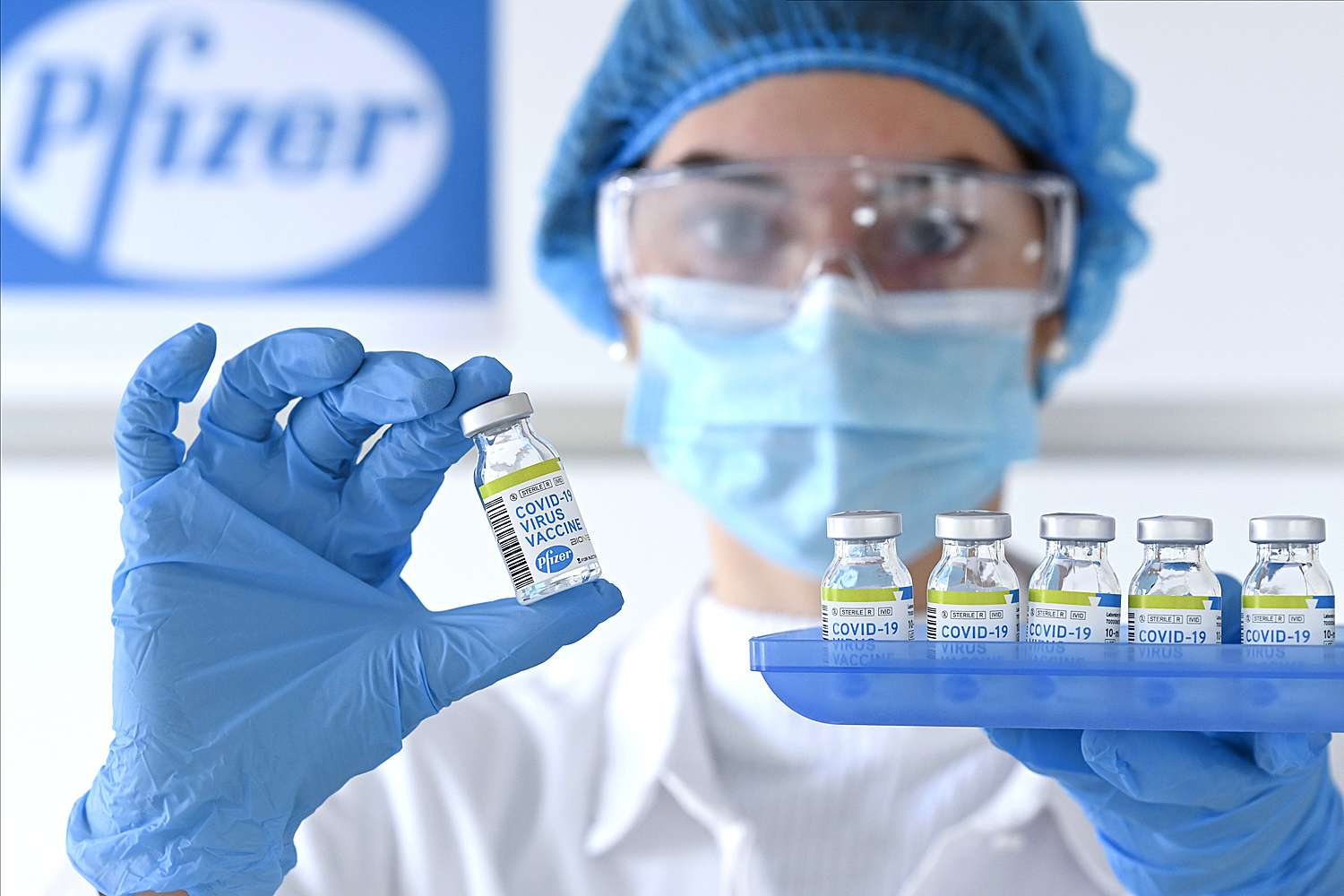
The chief operating officer of the federal government's vaccine initiative Operation Warp Speed is assuring Americans that the first COVID-19 vaccines will be distributed safely.
"I am absolutely, 100 percent, confident that we are going to distribute safely, this precious commodity this vaccine needed to defeat the enemy, Covid," Gen. Gustave Perna said during a news conference on Saturday held by the US Food and Drug Administration.
"Many of you want to know who will receive the first vaccine," Perna continued. "And while I leave that up to the experts at the Health and Human Services organization, I remind you of this: Nearly 100,000 Americans have already rolled up their sleeves and participated in clinical trials across America. They were the true first recipients of the vaccine."
The news conference came one day after the FDA issued an emergency use authorization of Pfizer's COVID-19 vaccine.
This means that the Pfizer-BioNTech COVID-19 Vaccine can begin to be distributed to people 16 years and older, marking "a significant milestone in battling this devastating pandemic that has affected so many families in the United States and around the world," FDA Commissioner Stephen M. Hahn, M.D., said in a press release.
Perna said shipping containers with the vaccine are already being packed at a Pfizer facility and that he expects the vaccine to arrive at 145 sites across the United States on Monday.
Another 425 sites are expected to receive the vaccine on Tuesday and the final 66 sites will receive it on Wednesday, completing the initial delivery of Pfizer vaccines.
Perna noted that the federal government will only be delivering half the doses, approximately 2.9 million, at this time as the Pfizer vaccine requires two doses.
"For me, it's a moral responsibility and obligation to make sure that second dose is available for the American people," he said. "We want to ensure the vaccine arrives safely and that it can be effectively administered once arrival occurs. It is so important that all vaccine that's available is utilized as a shot in an arm and nothing is wasted."
Perna continued, "The reason why we're holding on to the second dose, as well as some reserve, is that we don't have absolute confidence in the cadence – not because Pfizer or Moderna or the supporting manufacturers and fill-finishes aren’t diligent in their process. But it is such a delicate process, we want to ensure perfection in the vaccine because we don't want anything going into an arm that would be a problem."
The Pfizer vaccine has met the FDA's criteria for an emergency use authorization, the government agency said on Friday, and that "totality of the available data provides clear evidence" that the vaccine "may be effective in preventing COVID-19."
The FDA also said that the "potential benefits outweigh the known and potential risks" and assured the public and medical community that "a thorough evaluation of the available safety, effectiveness and manufacturing quality information" was conducted.
In the U.S. alone, the contagious respiratory virus has infected more than 16 million people, and at least 296,824 people have died as a result of COVID-19, according to data from the New York Times.
The FDA’s vaccine advisory panel voted 17 to 4 on Thursday in favor of authorizing the vaccine for use in Americans 16 years old and up, with one member abstaining. The FDA released a scientific review on Tuesday, saying they found Pfizer’s two-dose vaccine to be safe and effective, with the first shot providing more than 50 percent immunity and the second bringing immunity up to just under 100 percent.
"The tireless work to develop a new vaccine to prevent this novel, serious, and life-threatening disease in an expedited timeframe after its emergence is a true testament to scientific innovation and public-private collaboration worldwide," Hahn added Friday.
Alex Azar, the U.S.’s secretary of Health and Human Services, said earlier on Friday that the first inoculations could start as early as next week.
"We could see people getting vaccinated Monday, Tuesday of next week," he said on Good Morning America.
Vaccines will be free, thanks to a deal between Pfizer and the U.S. government to supply 100 million doses by March 2021, the New York Times reported. All 50 states have already submitted locations to which the vaccines can be shipped.
As information about the coronavirus pandemic rapidly changes, PEOPLE is committed to providing the most recent data in our coverage. Some of the information in this story may have changed after publication. For the latest on COVID-19, readers are encouraged to use online resources from the WHO and local public health departments. PEOPLE has partnered with GoFundMe to raise money for the COVID-19 Relief Fund, a GoFundMe.org fundraiser to support everything from frontline responders to families in need, as well as organizations helping communities. For more information or to donate, click here.
Source: Read Full Article
